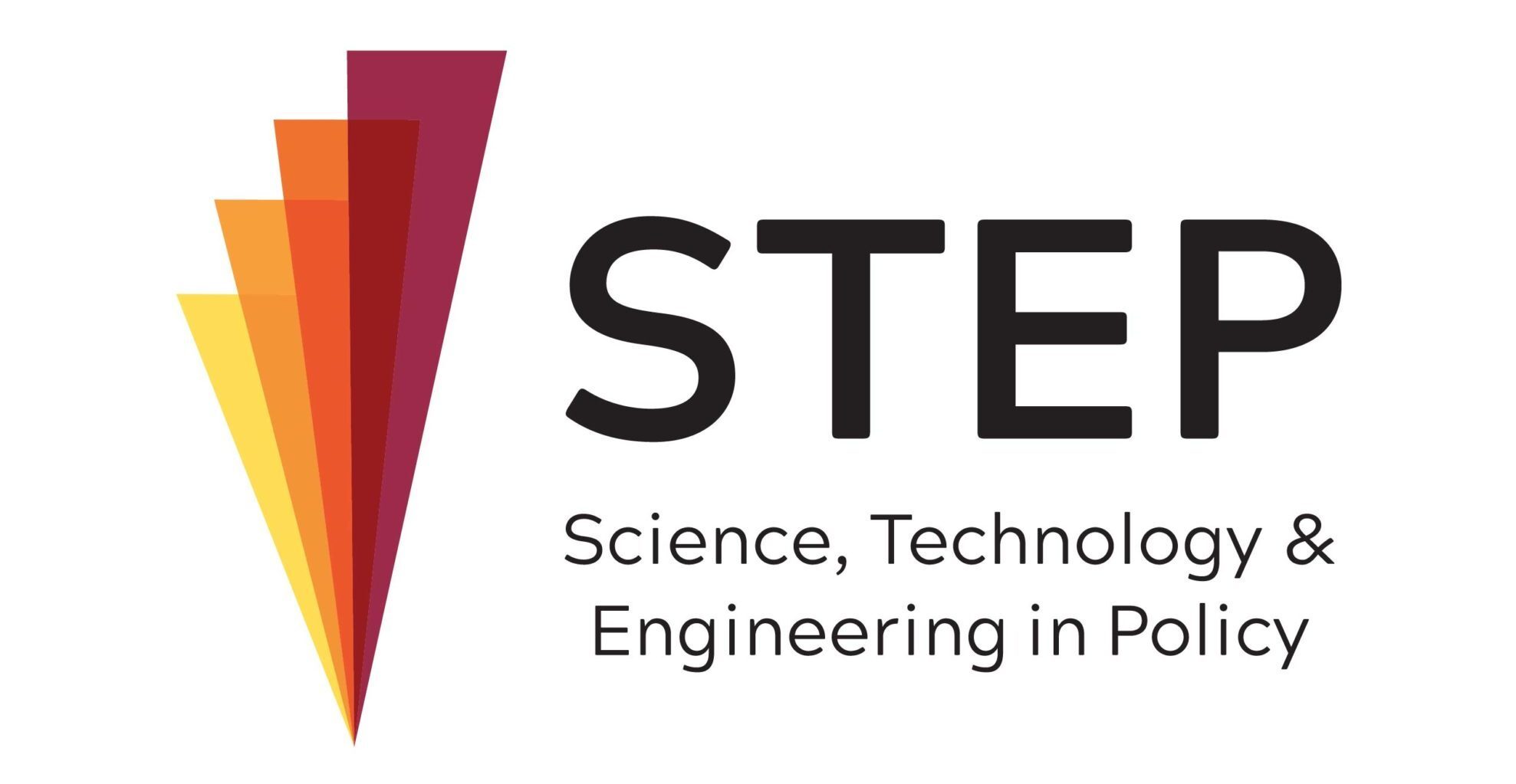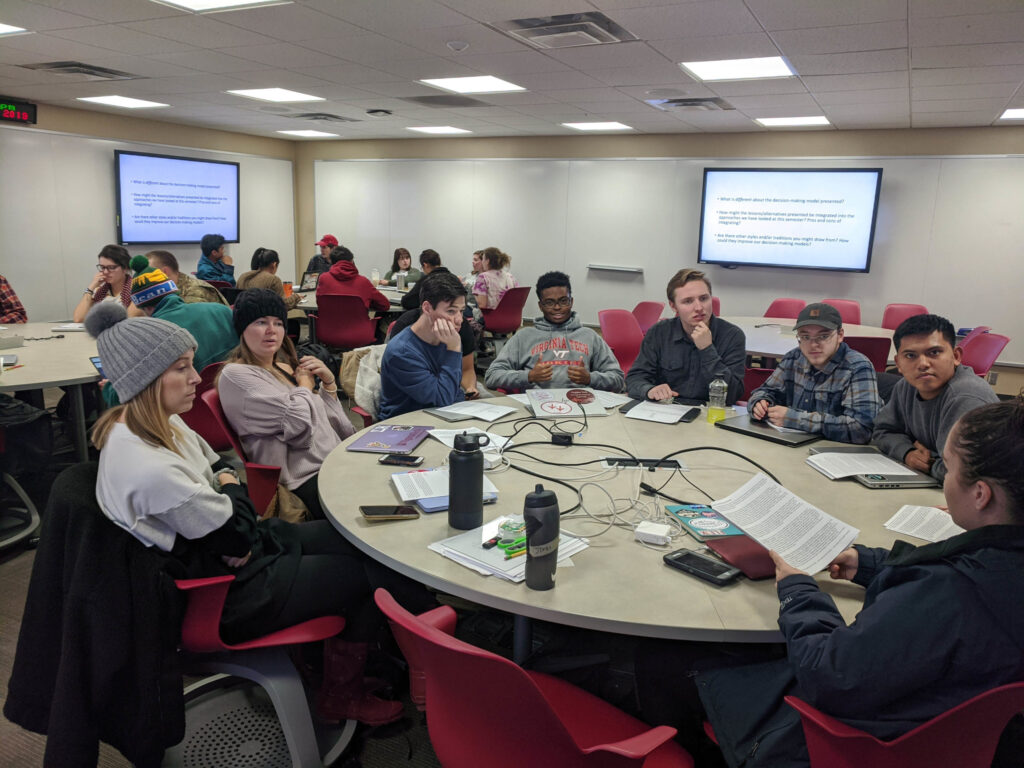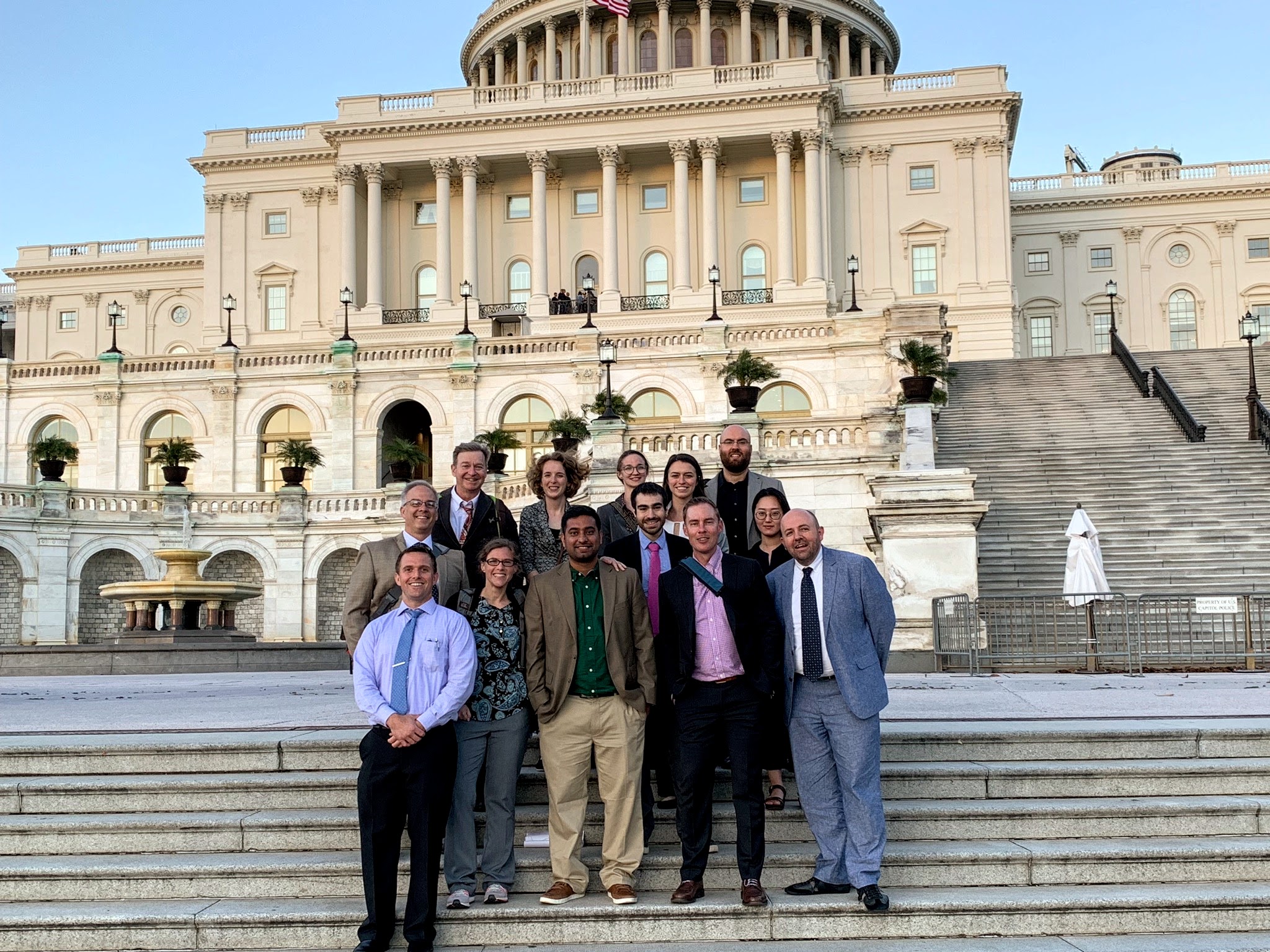Courses & Graduate Certificate
The STEP program offers a graduate certificate and four core graduate-level courses primarily targeted towards STEM-H students but open to all.
STEP Graduate Courses
STEP courses may be taken a-la-carte even if one has no interest in the certificate, and none of the courses have prerequisites beyond graduate standing. At this time, these courses are primarily offered on the Blacksburg campus, but often have synchronous online versions, making them accessible to students across the Commonwealth and beyond.
Policy Gateway: Policy and Decision Making in STEM-H Domains
PSCI 5104 (SPIA 5104) (STS 5104)
Key concepts in policy making, including policy analysis and decision making in complex social and technical settings. Policy process theories and evaluation tools. Concepts of governance including public values, ethics, and variable impacts across communities. Relationships among public policy decision processes and science, technology, and engineering, including disciplinary norms. Pre: Graduate standing (3H, 3C)
Decision Making, Reflective Practice, and Engagement in STEM-H Domains
SPIA 5124 (PSCI 5124) (STS 5124)
In-depth, case-based exploration of roles of science, engineering and technology in policy-making. Application of theories, concepts and practices for policy decision-making, including stakeholder engagement, human behavior, and organizational development. Critical examination of ethics, and fostering of reflective practice. Implications of “big data”. Pre: Graduate standing (3H, 3C)
Tools and Approaches for Policy-Making in STEM-H Domains
STAT 5134 (SPIA 5134) (PSCI 5134)
Techniques for translating theory-driven, qualitative concepts into quantitative data-focused modeling. Quantitative and computational tools including statistical inference and hypothesis testing, system dynamics, and economic analysis. Modern data analytic practices, including good collection, storage and visualization techniques. Understanding complexity. Critical examination of challenges and common pitfalls in quantitative modeling. Pre: Graduate standing (3H, 3C)
Science, Technology, and Engineering in Policy Seminar
STS 5154 (SPIA 5154) (PSCI 5154)
Presentation of research on STEM-H, public policy, and ethics. Professional development. Research resources and tools. Project management and funding opportunities. Publishing standards and processes across disciplines. STEM-H and policy practitioner engagement. Multidisciplinary communication. May be repeated up to six times, as seminar and presentation topics will change each semester. Pass/Fail only. Pre: Graduate standing (1H, 1C)
STEP Graduate Certificate
The 12-credit STEP Graduate Certificate is targeted towards STEM-H students interested in developing their understanding and capacities to effectively operate at the science-policy interface. These skills are invaluable whether one wants to pursue a career in the public sector, the private or non-profit sectors, or in academia in a world that increasingly emphasizes convergence.
Graduate certificate students must complete all four of the above courses and two additional credits relevant to the program. Those two additional credits may come from a policy-related course in their respective domain, another policy-related course of interest to them, or through the highly recommended:
Recommended external course: Communicating Science
GRAD 5144
Practice-based pedagogy techniques for effective communication about scientific, technical, and health research. Application of communication techniques across public and professional audiences and a variety of oral and written communication contexts. Pre: Graduate standing (2H, 2C)
Those interested in pursuing the graduate certificate should reach out to the STEP program director for more information. Registering for the certificate requires completion and submission of this Graduate School application form.



